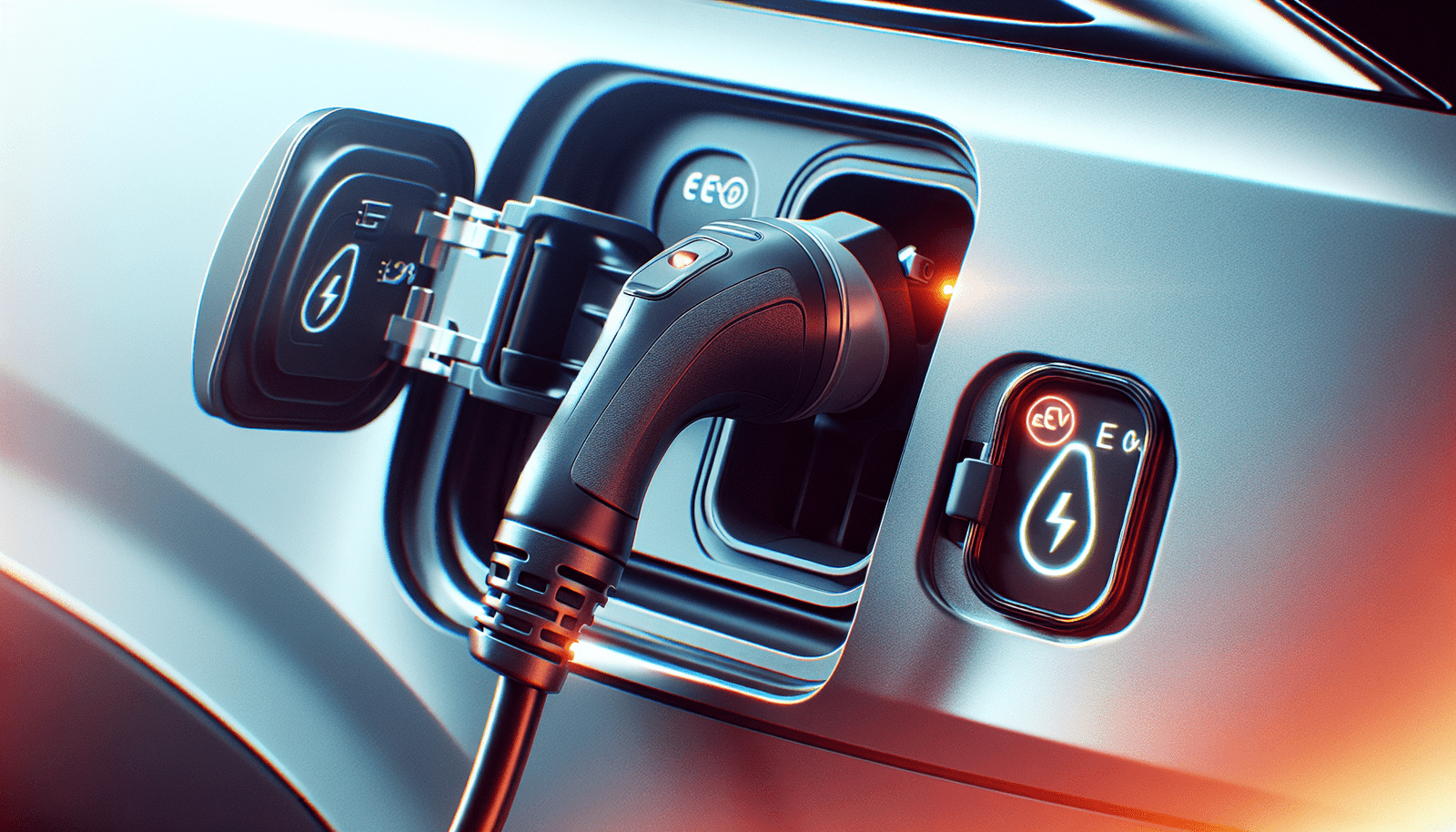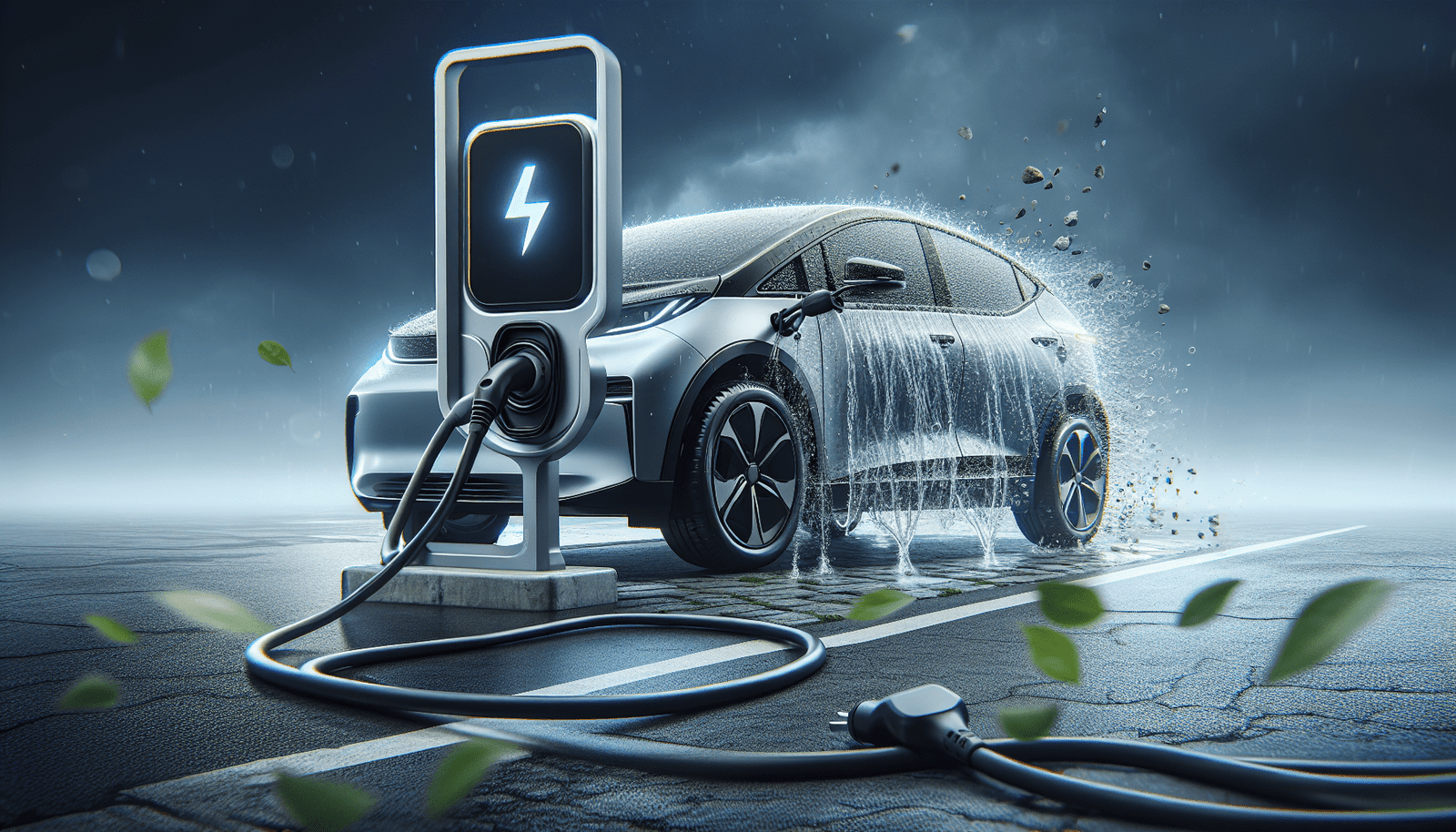Are you an avid electric vehicle user, or perhaps someone who is researching EV charger products? Look no further! In this article, we aim to provide you with the answers to frequently asked questions about Fleet EV Charging Solutions. Our content is written in a friendly and approachable tone, making it easy to understand even if you’re new to the world of electric vehicles. We’ve also ensured that the FAQs are structured in a straightforward manner, with each question followed by a concise answer. And don’t worry, we’ve taken care of the SEO-optimization too, so you can find the information you need without any hassle. So, let’s dive in and explore the world of Fleet EV charging solutions!
Understanding Fleet EV Charging Solutions
Explanation of what Fleet EV charging solutions mean
Fleet EV charging solutions refer to the infrastructure and equipment necessary for charging electric vehicles in a fleet setting. Rather than individual electric vehicle (EV) owners relying on residential charging stations or public charging stations, fleet EV charging solutions are designed to meet the unique needs of organizations that manage a fleet of electric vehicles, such as businesses or government entities. These solutions typically involve the installation of charging stations specifically designed for fleet purposes, along with the necessary network and management systems to support multiple vehicles.
Importance of Fleet EV charging solutions
Fleet EV charging solutions play a crucial role in enabling the widespread adoption of electric vehicles in fleet operations. By providing reliable and efficient charging infrastructure, organizations can overcome challenges related to charging availability, convenience, and speed. Fleet EV charging solutions ensure that electric vehicles in a fleet can be charged effectively, minimizing downtime and facilitating seamless operations. Additionally, these solutions contribute to sustainability efforts by reducing reliance on fossil fuels and decreasing emissions from transportation.
Difference between fleet EV charging and individual EV charging
The main difference between fleet EV charging and individual EV charging lies in the scale and specific requirements of each context. While individual EV charging is designed for personal use, fleet EV charging solutions cater to the needs of organizations managing multiple electric vehicles. Individual charging may primarily occur at home or public charging stations, whereas fleet charging typically involves dedicated charging stations installed at the organization’s premises or other strategic locations. Fleet EV charging solutions often include advanced features, such as management systems and reporting capabilities, that are tailored to the unique demands of fleet operations.
Types of Fleet EV Charging Stations
Level 1 Charging Stations
Level 1 charging stations are the most basic type of fleet EV charging stations. They typically provide charging through a standard electrical outlet and utilize the vehicle’s onboard charging equipment. Level 1 stations are convenient for overnight or long-duration charging, but they have the slowest charging speed among the various options. These stations are most suitable for fleets with low daily mileage requirements or vehicles that can remain connected to the charger for an extended period. Level 1 charging is commonly used for personal electric vehicles but may not be sufficient for larger fleet operations with higher charging demands.
Level 2 Charging Stations
Level 2 charging stations offer a faster charging option compared to Level 1 stations. They require a dedicated power supply and installation by a certified electrician. Level 2 charging stations provide a higher voltage and amperage output, enabling more efficient charging. These stations can charge a vehicle approximately two to five times faster than Level 1 stations, making them well-suited for fleet operations with moderate to high mileage requirements. Level 2 charging stations are commonly found in commercial settings, parking lots, and fleet depots.
DC Fast Charging Stations
DC Fast Charging stations, also known as Level 3 stations, are the fastest charging option for electric vehicles. These stations use direct current (DC) power and can charge a vehicle’s battery to 80% capacity within 30 minutes or less, depending on the vehicle’s compatibility. DC Fast Charging stations are ideal for fleet operations that require quick turnaround times and high charging speeds. However, they typically have higher installation and equipment costs compared to Level 1 and Level 2 stations. DC Fast Charging stations are commonly found along major highways, commercial hubs, and fleet centers.
Choosing the Right Fleet EV Charging Station
Understanding the fleet’s charging needs
The first step in choosing the right fleet EV charging station is to assess the specific charging needs of the fleet. Factors to consider include the number of electric vehicles in the fleet, their average daily mileage, charging time requirements, and any future expansion plans. Understanding the fleet’s charging needs will help determine the appropriate number and type of charging stations required.
Consideration of budget
Budget is another key consideration when selecting a fleet EV charging station. The cost of purchasing and installing charging stations can vary significantly depending on the type, features, and quantity required. It’s essential to strike a balance between meeting the fleet’s charging requirements and staying within budget constraints. Consulting with EV charging solution providers can help assess the available options and determine the most cost-effective solution.
Location and installation environment
The location and installation environment of the charging stations must also be carefully considered. Factors such as available space, electrical infrastructure, and ease of access should be evaluated. Additionally, the chargers should be installed in a safe and secure area to prevent damage or unauthorized use.
Analysis of charging speed requirements
Different fleet operations have varying charging speed requirements. Some fleets may prioritize fast charging options to minimize vehicle downtime, while others may opt for slower charging options due to lower daily mileage requirements. Analyzing the charging speed requirements of the fleet will help determine whether Level 1, Level 2, or DC Fast Charging stations are most suitable.
Maintenance and customer support
The availability of maintenance and customer support services should be taken into account when selecting a fleet EV charging station. It is essential to choose a reliable provider that offers prompt assistance and regular maintenance to ensure the charging stations operate optimally and minimize any potential downtime.
Benefits of Fleet EV Charging Stations
Cost savings
Fleet EV charging stations can result in significant cost savings for organizations. By transitioning from traditional fuel-powered vehicles to electric vehicles, fleets can reduce fuel costs and ongoing maintenance expenses associated with internal combustion engines. Electric vehicles generally have lower maintenance requirements and can be charged at a lower cost per mile compared to conventional vehicles.
Environmental sustainability
One of the key benefits of fleet EV charging stations is the positive impact on the environment. Electric vehicles produce zero tailpipe emissions, reducing greenhouse gas emissions and improving air quality. By adopting electric vehicles and utilizing fleet EV charging stations, organizations can contribute to sustainability goals and reduce their carbon footprint.
Increased efficiency and productivity
Fleet EV charging stations enable organizations to maintain a high level of efficiency and productivity. Electric vehicles can be charged overnight or during off-peak hours, ensuring that the fleet is ready for operation when needed. With easy access to charging infrastructure, vehicles can be charged conveniently, minimizing downtime and optimizing productivity.
Improved company reputation
Adopting electric vehicles and implementing fleet EV charging solutions can enhance a company’s reputation. Embracing sustainable practices demonstrates a commitment to environmental responsibility and can attract environmentally-conscious customers and employees. Being recognized as a leader in sustainable transportation can also open up new business opportunities and partnerships.
Common Features of Fleet EV Charging Stations
Smart charging capabilities
Many fleet EV charging stations come equipped with smart charging capabilities. These features enable the scheduling of charging sessions, load management to optimize power distribution, and integration with energy management systems. Smart charging capabilities can help minimize peak demand charges, improve energy efficiency, and enhance overall charging management.
Safety features
Safety is of utmost importance when it comes to fleet EV charging stations. Common safety features include ground fault protection, overcurrent protection, and circuit breakers to prevent electrical hazards. Some charging stations also offer temperature sensors and other monitoring mechanisms to ensure safe charging conditions.
Monitoring and reporting features
Fleet EV charging stations often provide monitoring and reporting features that allow fleet managers to track usage, energy consumption, and charging session data. Real-time monitoring and reporting can help optimize fleet operations, analyze charging patterns, and identify any issues or inefficiencies.
User-friendly design and operation
User-friendly design and operation are essential aspects of fleet EV charging stations. Charging stations should be intuitive and easy to use, with clear instructions and user interfaces. Additionally, stations should be designed for durable and reliable operation, capable of withstanding various weather conditions and heavy use.
Installation and Maintenance of Fleet EV Charging Stations
Installation procedures and tips
The installation of fleet EV charging stations should be carried out by qualified professionals to ensure compliance with safety standards and electrical regulations. Proper planning and site assessment are crucial for determining the optimal location and electrical requirements. Work with certified electricians to conduct the necessary electrical work, including electrical panel upgrades if needed. It is important to consult with the charging station manufacturer or provider for specific installation guidelines and best practices.
Routine maintenance practices
Regular maintenance is essential to ensure the optimal operation of fleet EV charging stations. Routine tasks may include cleaning charging connectors, inspecting cables for wear and tear, and conducting periodic software updates. It is recommended to follow the manufacturer’s maintenance guidelines for each specific charging station model to maximize performance and longevity.
How to deal with common malfunctions
While fleet EV charging stations are designed to be reliable, malfunctions may still occur. It is essential to have a troubleshooting plan in place to address common issues, such as faulty connections, power interruptions, or error messages. Refer to the charging station’s user manual or contact the manufacturer’s customer support for guidance in resolving specific malfunctions.
Warranty and after-sales service
When selecting fleet EV charging stations, consider the warranty and after-sales service provided by the manufacturer or provider. A comprehensive warranty can provide peace of mind and assurance of quality. Additionally, prompt and responsive after-sales service is crucial in addressing any potential issues and ensuring the long-term reliability of the charging stations.
Cost of Fleet EV Charging Stations
Initial cost analysis
The cost of fleet EV charging stations can vary depending on several factors, including the type of stations, installation requirements, and any additional features or accessories. Level 1 charging stations typically have the lowest initial cost, while Level 3 charging stations can involve higher upfront expenses. It is important to consider both the cost of the charging stations themselves and the installation costs, including any necessary electrical upgrades.
Operational and maintenance cost factors
In addition to the initial cost, fleet EV charging stations have ongoing operational and maintenance costs. Electricity costs represent the primary operational expense, which varies based on the electricity rate and the number of vehicles being charged. Routine maintenance, such as cleaning and software updates, should also be factored into the overall cost analysis.
Financial support and incentives
To encourage the adoption of electric vehicles and fleet EV charging solutions, there may be financial support and incentives available. These can include grants, tax credits, or rebates aimed at reducing the upfront costs of purchasing and installing charging stations. Research local, state, and national incentives to take advantage of any available financial support.
Return on investment
Calculating the return on investment (ROI) for fleet EV charging stations involves analyzing the long-term cost savings and benefits. Consider factors such as reduced fuel costs, lower maintenance expenses, potential revenue generation through public charging, and any environmental or sustainability benefits. Performing an ROI analysis will help determine the viability and financial impact of deploying fleet EV charging stations.
Fleet EV Charging Solutions Providers
Overview of popular providers
There are several providers in the market that offer fleet EV charging solutions. Some well-known providers include ChargePoint, EVBox, Siemens, Schneider Electric, and ABB. These companies specialize in manufacturing and installing charging stations, along with providing network management systems and software solutions.
Comparison of their services
When selecting a fleet EV charging solutions provider, it is essential to compare their services based on factors such as charging station quality, availability of management and reporting systems, customer support, and warranty offerings. Consider the specific needs of your fleet and evaluate how well each provider’s offerings align with those requirements. Reading customer reviews and ratings can also provide valuable insights into the overall satisfaction and performance of different providers.
Customer reviews and ratings
Customer reviews and ratings are valuable resources for evaluating the quality and performance of fleet EV charging solutions providers. Look for feedback from other organizations that have implemented their charging stations to gain insights into their experiences. Pay attention to factors such as reliability, customer support, ease of use, and overall satisfaction levels reported by customers.
Future of Fleet EV Charging Stations
Emerging technologies in EV charging
The future of fleet EV charging stations is filled with exciting emerging technologies. Advancements in battery technology, such as longer-lasting and faster-charging batteries, will drive further improvements in charging infrastructure. Wireless charging, vehicle-to-grid integration, and advanced load management systems are also expected to play significant roles in the future, offering increased convenience, energy efficiency, and grid stability.
Expected trends and developments
Trends in fleet EV charging stations are expected to focus on enhanced connectivity, interoperability among different charging networks, and improved charging infrastructure scalability. These developments will facilitate seamless charging experiences and support the growing number of electric vehicles in fleet operations. Integration with renewable energy sources and the use of energy storage systems are also anticipated, enabling greater sustainability and minimizing grid impact.
Impact of renewable energy
Renewable energy will play a crucial role in the future of fleet EV charging stations. As the grid becomes greener and more renewable energy sources, such as solar and wind power, are integrated, charging stations can rely on clean energy to charge electric vehicles. This will further enhance the environmental benefits of fleet EV charging solutions and support the overall transition to a sustainable energy ecosystem.
Frequently Asked Questions about Fleet EV Charging Stations
Compiling common questions and their answers
-
How do fleet EV charging stations differ from individual charging stations?
Fleet EV charging stations are designed to cater to the charging needs of organizations managing multiple electric vehicles, whereas individual charging stations are primarily used by personal electric vehicle owners.
-
What are the different types of fleet EV charging stations?
There are three main types of fleet EV charging stations: Level 1, Level 2, and DC Fast Charging stations. Each offers different charging speeds and capabilities to accommodate varying fleet requirements.
-
How do fleet EV charging stations contribute to cost savings?
Fleet EV charging stations can result in cost savings by reducing fuel costs, minimizing ongoing maintenance expenses, and offering competitive electricity rates for charging the vehicles.
-
Are fleet EV charging stations environmentally friendly?
Yes, fleet EV charging stations contribute to environmental sustainability by reducing greenhouse gas emissions and improving air quality through the use of electric vehicles.
-
What features should I look for in fleet EV charging stations?
Important features of fleet EV charging stations include smart charging capabilities, safety features, monitoring and reporting capabilities, and user-friendly design and operation.
Addressing misconceptions about EV charging
-
Is it true that electric vehicles take a long time to charge?
While charging times for electric vehicles vary depending on the charging station and vehicle, advancements in charging technology, such as DC Fast Charging stations, enable rapid charging times of 30 minutes or less for an 80% charge.
-
Do fleet EV charging stations require a dedicated power supply?
Yes, fleet EV charging stations typically require a dedicated power supply to ensure optimal charging performance and safety.
-
Can fleet EV charging stations be installed in any location?
The installation of fleet EV charging stations depends on the availability of space, electrical infrastructure, and other site-specific considerations. Consultation with a certified electrician and charging station provider is recommended to determine feasibility.
Tips for efficient use of EV charging stations
-
Plan charging sessions during off-peak hours to take advantage of lower electricity rates and minimize strain on the electrical grid.
-
Consider the range and charging capabilities of electric vehicles when scheduling charging sessions to ensure vehicles are adequately charged for the required mileage.
-
Utilize any smart charging capabilities available to optimize charging schedules and minimize energy consumption.
Remember, it’s always a good idea to consult with charging station manufacturers, providers, or industry professionals for specific guidance tailored to your fleet’s needs.
By understanding fleet EV charging solutions, their benefits, and the factors to consider when choosing and maintaining charging stations, organizations can optimize their transition to electric vehicles. Fleet EV charging solutions provide a reliable, convenient, and sustainable way to power electric fleets, contributing to a greener future.




